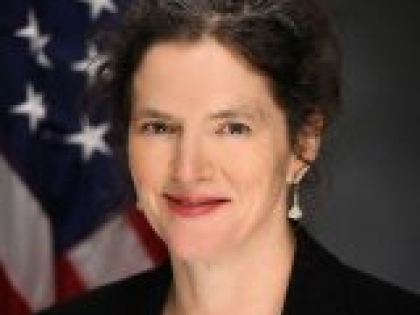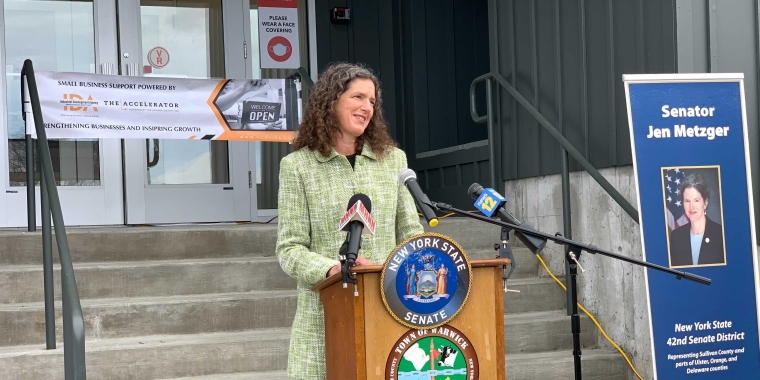
Metzger Bill To Protect Electric Vehicle Access to Public Charging Facilities Passes Senate
July 23, 2020

Albany, NY...A bill introduced by State Senator Jen Metzger and Assemblymember Amy Paulin (S6836) to protect electric vehicle (EV) drivers’ access to public charging facilities passed the Senate this week and heads to the Governor's desk for signature. The bill makes it a violation of Vehicle and Traffic Law for a non-electric car to park in a space reserved for EV charging in order to discourage drivers from using these spaces for parking—a common occurrence that has frustrated electric vehicle drivers in need of a charge. The bill also requires that electric vehicles must be charging while using the designated spaces, and not just parking.
New York State has committed to a goal of getting one million EVs on the road by 2025, and sales for plug-in vehicles continue to grow. While EV owners typically meet their charging needs by charging their cars at home overnight, public charging facilities for EVs are becoming increasingly common in municipal parking lots and on public streets, and are especially important for drivers visiting or commuting from great distances. According to the Alternative Fuels Data Center, there are nearly 1,500 stations for electric vehicles in New York State, which offer a total of 3,614 charging outlets. EV drivers must be able to dependably use these chargers when needed, especially if these chargers are few and far between.
While several states have passed legislation to prohibit "ICE-ing" at charging facilities (the term, "ICE," referring to Internal Combustion Engines), there is currently no law in New York to discourage this practice. The Metzger-Paulin bill will protect EV access to this public infrastructure in New York.
“EV drivers need access to charging stations just like non-EV drivers who pull up to the pump, and it’s critical that the public only use charging spaces for their intended purpose—to charge,” said Senator Metzger (SD-42), who drives a fully electric Chevy Bolt. “To make the shift to electric vehicles, drivers need to have the confidence that these facilities will be available, and I’m pleased to see this bill pass the Senate.”
Assemblymember Amy Paulin (AD-88) said, "Reserving parking spaces for electric vehicles must be enforceable. This is important for practical as well as public policy reasons. Practically, owners of electric vehicles need to be able to charge their vehicles when they are away from home. On a public policy level, this legislation will provide a further incentive for drivers to purchase electric vehicles and help reduce carbon emissions."
The transportation sector accounts for more than a third of New York's greenhouse gas emissions, the main cause of climate change, and the shift to clean vehicles will be essential for meeting the state's targets for an overall reduction in emissions by 40 percent by 2030 and 85 percent by 2050.
Senator Metzger has been a leading proponent in the State Senate for shifting to a clean energy economy, and has introduced a package of bills to accelerate adoption of electric vehicles in New York. In December, the Governor signed into law Metzger's bill (S5820) directing the New York State Energy Research and Development Authority to identify areas across the state where EV infrastructure is insufficient and develop a plan to close the gaps. Last week, Metzger announced the introduction of a bill (S8765) that would increase the number of zero-emissions trucks on the road, reducing harmful pollutants that cause asthma and other health problems while helping New York to meet the goals of the Climate Leadership and Community Protection Act passed last year.
Jen Metzger represents the 42nd Senate District, which includes all of Sullivan County and parts of Delaware, Orange, and Ulster Counties. Senator Metzger serves as Chair of the Agriculture Committee and sits on the Environmental Conservation, Education, Health, Energy and Telecommunications, Local Government, Women’s Issues, Domestic Animal Welfare, and Legislative Commission on Rural Resources Committees.
###
related legislation
Share this Article or Press Release
Newsroom
Go to Newsroom


